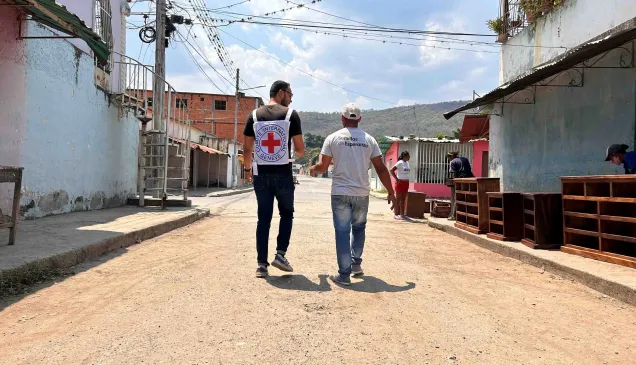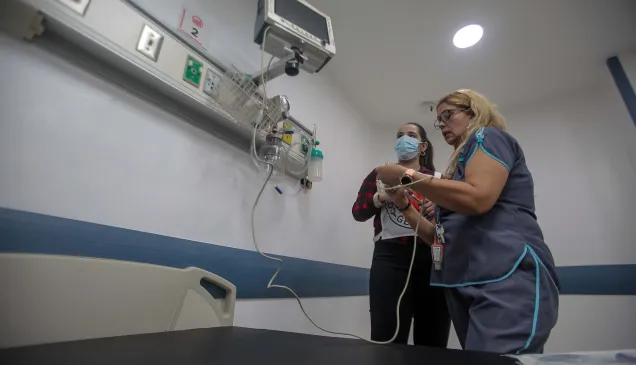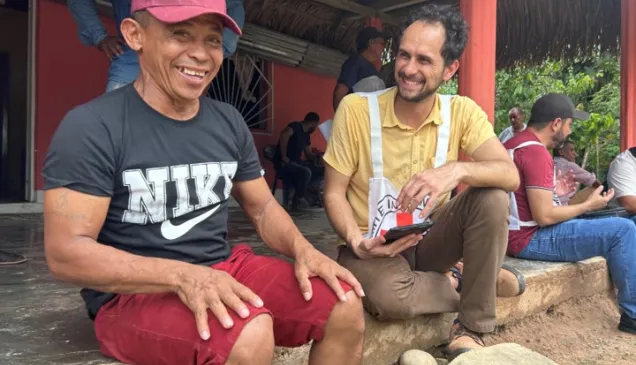The COVID-19 pandemic has had a dramatic impact on the lives of Jaixina, Elizabeth, Jose, and Gisselle, who volunteer with the Venezuelan Red Cross. They all know that they could become infected with the virus in the course of their work. Nevertheless, they continue volunteering because they know that many people would struggle without their help. Every day, they and 82 other volunteers work in shelters where more than 15,000 people are completing their mandatory quarantine after returning to Venezuela through Guasdualito, in Apure state, and before resuming their journey home to other areas of the country.
Venezuela: lives turned upside down by the COVID-19 pandemic
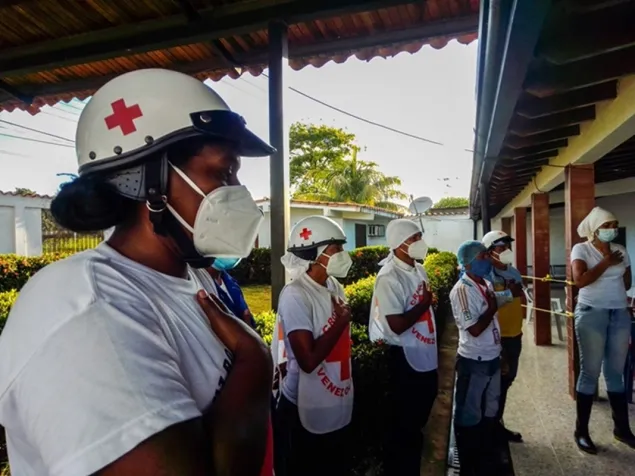
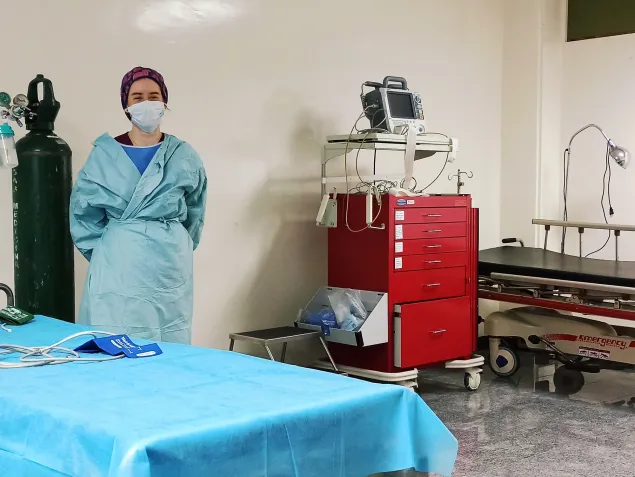
Stefani is exhausted after another long shift at Domingo Luciani Hospital, which serves patients from Caracas, and particularly from its largest neighbourhood, Petare. Although she has found it difficult to comfort people who've been diagnosed with COVID-19, Stefani is pleased that many of the patients in her care have beaten the virus and been able to return home to their families. In health centres throughout Venezuela, health care workers like Stefani have had to take on more responsibilities and work additional shifts. Nevertheless, Stefani and her colleagues said that they love their work and that, despite the difficulties, they will continue to care for those who need their help the most.
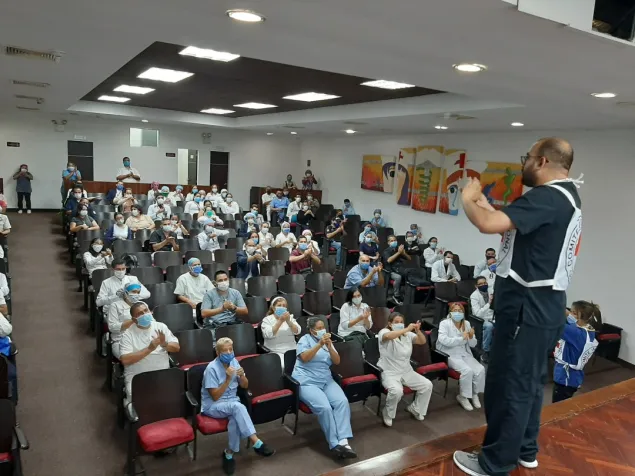
"We never imagined that something like this would happen. Suddenly we had to reorganize our work to respond to the pandemic and to protect and help as many people as possible," says Camilo, an ICRC doctor in Táchira State, where armed groups openly operate. In response to restrictions on movement, shortages of protective equipment for health-care workers and a lack of information on how to handle a crisis of this magnitude, the ICRC stepped up its efforts to train over 3,700 workers on general preventive measures, the use of personal protective equipment, infection control and hygiene protocols inside and outside of hospitals.
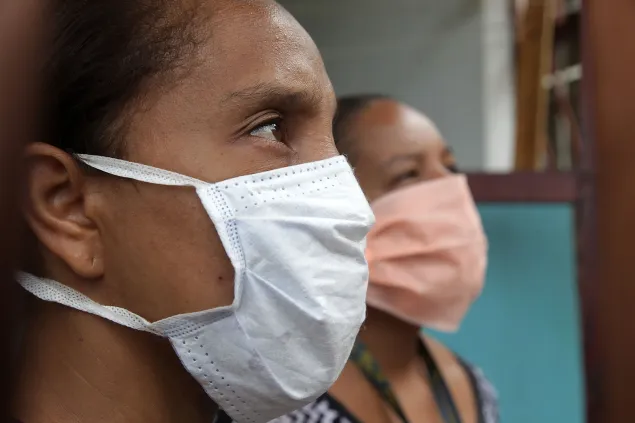
The outbreak of the COVID-19 pandemic and subsequent lockdown have had a significant economic impact on many families already struggling to maintain a dignified standard of living. Maria and Kariny have faced an uncertain future since losing their jobs in March, when the clothing factories in which they worked closed their doors. The sisters and their children now eat one square meal a day at the community canteen run by the Marta and Maria parish. Their neighbourhood, Petare, is controlled by armed gangs, and the ICRC has been distributing kitchen implements and cleaning and disinfection materials to workers there. The sisters were also offered the opportunity to work as seamstresses, sewing more than 78,000 face masks to protect Venezuelan Red Cross volunteers, vulnerable people and those deprived of their liberty. This work will enable Maria and Kariny to improve their circumstances and to feed their families.
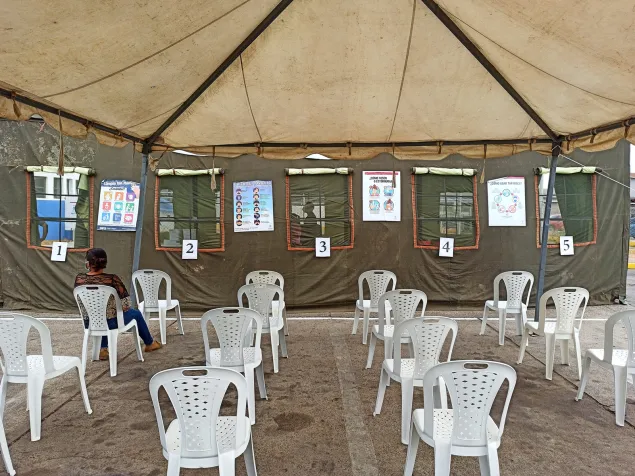
At Ruiz y Páez Hospital in Ciudad Bolívar, people arriving for a COVID-19 test are asked to sit on chairs placed 1.5m apart. María Cristina, who is waiting to be seen, tells us: "My children can’t go to school and I can’t look after them because I need to work. I wear a mask, but many people don’t and that’s why I’ve come for a test. I hope that it comes back negative because I don't want my children to get sick". In order to ensure that health-care facilities in Venezuela can continue to operate, the ICRC is providing helping to bolster the infrastructure at five hospitals in areas affected by armed violence, by setting up units for COVID-19 patients.
Before the COVID-19 pandemic, thousands of people in Venezuela were already suffering the effects of armed violence and had limited access to water, health care, and food. The pandemic has only made their lives more difficult, heightening their fears and worries and forcing them to spend their everyday lives to protect themselves and their loved ones.
From behind their masks, Venezuelans describe the impact of the pandemic and how they are adapting so that they can continue to help their families and others in need in these uncertain times.

